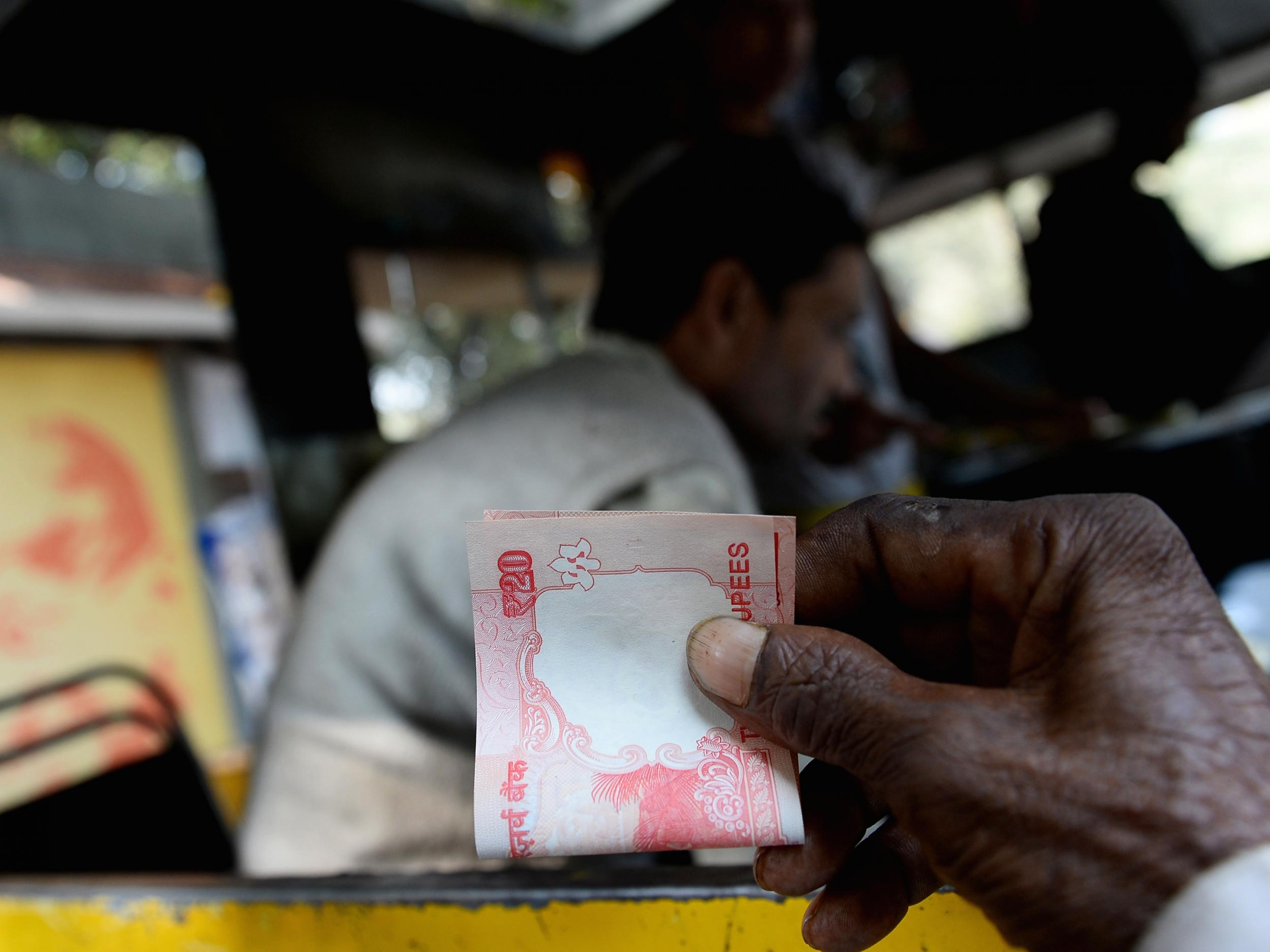Indian politicians consider universal basic income following successful trials
Concept of UBI is being taken seriously but economists remain divided

Your support helps us to tell the story
From reproductive rights to climate change to Big Tech, The Independent is on the ground when the story is developing. Whether it's investigating the financials of Elon Musk's pro-Trump PAC or producing our latest documentary, 'The A Word', which shines a light on the American women fighting for reproductive rights, we know how important it is to parse out the facts from the messaging.
At such a critical moment in US history, we need reporters on the ground. Your donation allows us to keep sending journalists to speak to both sides of the story.
The Independent is trusted by Americans across the entire political spectrum. And unlike many other quality news outlets, we choose not to lock Americans out of our reporting and analysis with paywalls. We believe quality journalism should be available to everyone, paid for by those who can afford it.
Your support makes all the difference.Indian politicians have met to discuss the possibility of introducing a universal basic income (UBI) after a survey suggested it could eradicate the widespread grinding poverty in the country.
Talks were held in Delhi to consider the controversial proposal – which has economists and politicians fiercely divided.
Under UBI, all citizens – regardless of income – are given a basic amount to live on without being taxed, claiming benefits or having to meet other conditions.
Some on the left claim this frees people from poverty, opens up opportunities and can save the state money in the long-term while many on the right argue it increases state dependence and is unaffordable.
More than 80 Indian politicians, academics and experts attended the discussion held by the Institute for Human Development (IHD).
UBI has attracted serious attention in India following the success of recent pilot studies coupled with a widespread view that India’s current system of targeted welfare benefits and price subsidies is wasteful and inefficient.
However, Finance Minister Arun Jaitley recently stated that UBI is not feasible in the country due to “political limitations.”
Those in favour, including Professor Braneb Bardhan of the University of California, Berkeley, told the conference that a UBI of about a thousand rupees (about 15.5 USD or 13.5 EUR) per month is affordable through increasing taxes for the rich and ending certain government subsidies that primarily benefit the better-off.
But he warned that UBI should not replace all current welfare programmes or divert funding from public goods and services.
Critics including Professor Dreze termed the scheme a "trojan horse" which if implemented would be used to rationalise a reduction elsewhere in spending on essential social and economic services.
The conference heard that pilots conducted in rural villages in the state of Madhya Pradesh revealed the provision of UBI led to no increased spending on alcohol or other “temptation goods” – a common argument against the policy.
Short-term UBI was associated with many positive effects, including better nutrition, a decrease in serious health problems, higher rates of school attendance, lower debt, and greater job opportunities, especially for women, researchers claimed.
With an estimated population of 1.3 billion people,India has a rapidly growing economy, but around 29.5 per cent of people continue to live in poverty, according to a 2014 government report – particularly in rural areas.
Professor Guy Standing, a founding member of the Basic Income Earth Network, told Business Insider UBI trials in India had been “remarkably positive”, giving people a sense of control over their money, reducing debt and empowering women. “
The concept of UBI received a boost when the government of Finland announced the introduction of a trial involving 2,000 unemployed people last year.
But India could face significant obstacles to implementing UBI which do not exist in Finland due to the vast differences in social and economic context.
The 2017 survey pointed out that India suffers from “high levels of corruption, clientelism, rules and red tape” which could make delivering UBI difficult.
Join our commenting forum
Join thought-provoking conversations, follow other Independent readers and see their replies
Comments